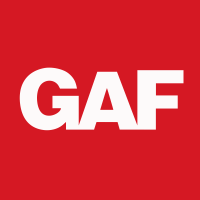Reflecting Sunlight: Albedo as a Means to Reduce the Greenhouse Effect
Reflecting Sunlight: Albedo as a Means to Reduce the Greenhouse Effect
Thursday, June 30, 2022, 11:00 am – 1:30 pm (PDT)
But how does one quantify the effectiveness of various solar-reflection strategies?
Researchers at academic institutions and national laboratories are quantifying the radiative forcing benefits of cool surfaces. That research includes grappling with challenging but important comparisons between radiative forcing impacts of albedo and their greenhouse gas emission (GHG) equivalents.
To raise greater awareness of the radiative forcing benefits of cool surfaces and the carbon dioxide equivalent (CO2e) quantification thereof, Climate Resolve hosted a virtual panel discussion on “Reflecting Sunlight: Albedo as a Means to Reduce the Greenhouse Effect.” The following renowned expert panelists participated; to view a researcher’s slide presentation, click on their name.
- Dr. Maria Hakuba, NASA Jet Propulsion Laboratory
- Dr. Hashem Akbari, Concordia University
- Dr. Hessam Azarijafari, Massachusetts Institute of Technology
- Dr. Ronnen Levinson, Lawrence Berkeley National Laboratory
White Paper
Panelists

NASA Jet Propulsion Laboratory
Maria Hakuba is a Research Scientist in the Aerosols and Clouds Science group at the NASA Jet Propulsion Laboratory in Pasadena, California. Maria is Deputy Principal Investigator for NASA’s satellite mission Libera, enabling continuity to the Earth Radiation Budget Climate data record. She also leads a project that investigates the feasibility of measuring Earth’s energy uptake through radiation pressure variations in orbit and studies various aspects of climate using satellite, surface and modelling data. She obtained a Doctoral Degree in Environmental Sciences at ETH Zurich, Switzerland, in 2015. Her primary study interests concern the measurement and assessment of Earth’s energy balance and linkages to the water cycle and sea level budget. Maria is vice-chair of the American Meteorological Society’s committee on Atmospheric Radiation, commissioner of the International Radiation Commission and member of the GCOS Atmospheric Observation Panel for Climate.

Concordia University
Hashem Akbari is a Professor and leader of the Heat Island Group at Concordia University (Montreal, Canada). Prior to joining the Concordia University he was the leader of the Heat Island Group, Senior Scientist, and principal investigator in the Environmental Energy Technologies Division at LBNL. He has obtained his Ph.D. in engineering from the University of California, Berkeley. He has pioneered the research in analyzing urban heat islands and development of countermeasures to cool summer heat islands and design of energy efficient communities. His research focus has been: analyses of energy, air quality, health impact, and environmental aspects of heat islands mitigation measures (cool roofs, cool pavements, urban vegetation); development of cool materials; development of implementation codes and standards; and in collaboration with policy makers and stakeholders, coordination of national and international programs for implementing mitigation measures. Dr Akbari’s research also includes energy efficiency in commercial and residentials buildings; advanced integrated utility-customer communication, computation and control; and integrated smart control in commercial buildings. Dr. Akbari is the author of more than 300 articles and coauthor of four books, and chief editor and editor of several scientific journals. He is the founding organizer and member of Board of Directors of Global Cool Cities Alliance, Cool Roof Rating Council; and an active member of ASHRAE and ASTM. In collaboration with GCCA, he is currently coordinating the “100 Cool Cities” initiative to cool urban heat islands and counter global warming. He is also the leading organizer of the International Conference on Countermeasures to Urban Heat Islands (IC2UHI) series held every 2-3 years.

Massachusetts Institute of Technology
Hessam AzariJafari is a lecturer at the University of Michigan and a research affiliate at the Massachusetts Institute of Technology (MIT). His background is in construction management and engineering. As a principal investigator and researcher, he has been leading different projects on the life cycle sustainability urban heat island effect, and cool pavement implications. He is a voting and advisory member of several technical committees on sustainable construction and environmental assessment, such as ISO 14082 Radiative Forcing Management, and ACI 130- Concrete Sustainability. Hessam has been serving as the chair of the ACI eco-concrete competition to promote and educate life cycle sustainability to undergraduate students in civil engineering. He received his Ph.D. from the University of Sherbrooke in Canada. His thesis was on the development of a consequential dynamic framework for assessing the potential environmental impacts of pavements at a policy-making level.

Levinson Lawrence Berkeley National Laboratory
Dr. Ronnen Levinson is a Staff Scientist and Leader of the Heat Island Group at Lawrence Berkeley National Laboratory (LBNL) in Berkeley, California. Within his research portfolio he develops cool roof, wall, and pavement materials; improves methods for the measurement of solar reflectance; and quantifies the energy and environmental benefits of cool surfaces. He serves on the boards and technical committees of the Cool Roof Rating Council and the Global Cool Cities Alliance, and advises policymakers, code officials, utilities, and building rating programs about cool surfaces. He holds a B.S. in engineering physics from Cornell University and an M.S. and a Ph.D. in mechanical engineering from the University of California at Berkeley. He has authored or co-authored over 100 publications, and serves on the editorial boards of Energy & Buildings, Solar Energy, Solar Energy Advances, and Scientific Reports. He received the 2016 Marty Hastings Award for outstanding contributions to the Cool Roof Rating Council, and a 2016 R&D 100 Award for invention of the Cool Roof Time Machine.
Moderator

Hammerschlag LLC
Roel Hammerschlag is the principal of Hammerschlag LLC, specializing in greenhouse gas inventories, greenhouse gas regulation, life-cycle assessments of fuels, and renewable energy technology assessments. Recent clients have included King County, the University of Washington, the Natural Resources Defense Council, Recology CleanScapes, and the Thurston Regional Planning Council. From 2010-2013, Mr. Hammerschlag served Washington State as the program manager for Washington’s State Energy Strategy, and from 2007-2010 Stockholm Environment Institute engaged him in the role of Senior Scientist.
Mr. Hammerschlag has applied his highly specialized knowledge in physics, thermodynamics and life-cycle assessment to evaluating an enormous spectrum of energy resources from solar PV to genetically modified algae. Special projects have focused on the energy, materials and greenhouse gas balances of pelletized biomass; gaseous and liquid hydrogen; deep-bore geothermal energy; biomethane generated from swine and cattle manure; recycled, used motor oil; corn ethanol; and cellulosic biofuels.
Mr. Hammerschlag earned a Bachelor of Science in Physics from the Massachusetts Institute of Technology in 1988, and a Master of Public Administration at the University of Washington in 2007, supported by fellowships from the UW Program on Climate Change and the Henry M. Jackson Foundation. In 2003 the MacArthur Foundation awarded Mr. Hammerschlag and Patrick Mazza a Grant for Research and Writing examining limits to hydrogen fuel.





